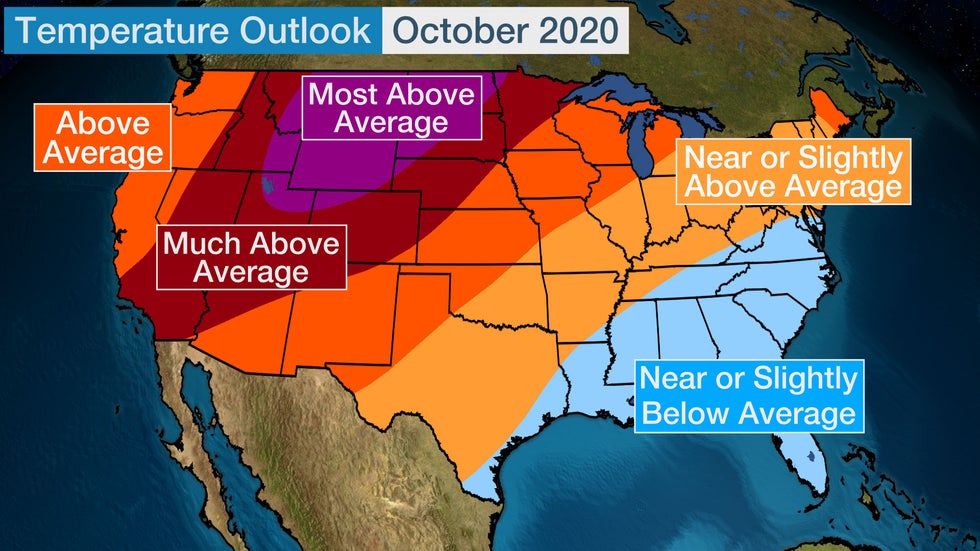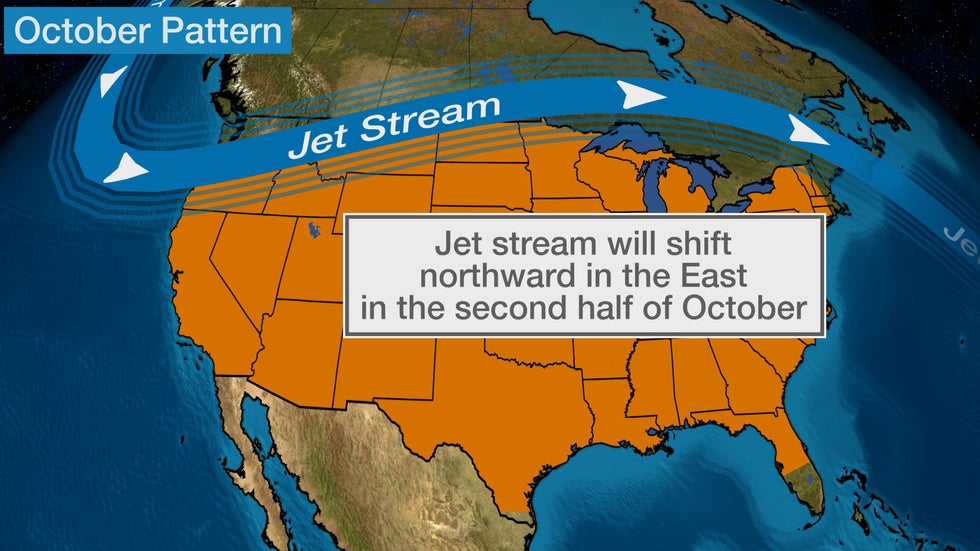Linda Lam
It may not feel much like fall in parts of the western United States in October, according to the latest outlook issued by The Weather Company, an IBM Business.
Temperatures are expected to be above average across the West and into parts of the Midwest in October. Parts of the Rockies into western South Dakota and much of North Dakota could experience temperatures most above average.
Farther east, areas from Texas into the Ohio Valley, eastern Great Lakes and much of the Northeast should trend near average or slightly warmer.
Meanwhile, the Southeast and most of the mid-Atlantic will find temperatures near or slightly below average in October.
 October temperature outlook from The Weather Company, an IBM Business.
October temperature outlook from The Weather Company, an IBM Business.What Factors Are Driving This Forecast?
The most prominent factor in this forecast is that La Niña conditions have developed and are expected to last through the winter.
"La Niña will be the main driver of the seasonal pattern starting in October," said Todd Crawford, chief meteorologist at The Weather Company.
As a reminder, La Niña is the periodic cooling of sea-surface temperatures in the equatorial Pacific Ocean and can influence weather conditions across the globe.
When La Niña is present this time of year, it typically leads to a warm October in the contiguous U.S.
Cooler-than-average conditions, however, are expected in the central and eastern U.S. for the first week or so of October. Then, a shift in the upper-level pattern is anticipated around mid-month that will likely lead to warmer temperatures emerging in the Plains and parts of the East, with some cooling possible in portions of the West.
Crawford compared the last seven La Niña events and found that 2008 and 2010 appear fairly similar to the recent pattern and the one that will begin October. Blending the October temperature results for those two years suggests above-average temperatures are likely in the West for the overall month, while near average or slightly cooler conditions are expected toward the Southeast.
 Expected pattern for the second half of October.
Expected pattern for the second half of October.Average October Temperatures
Average temperatures tumble in October as we move deeper into fall.
Highs across the northern tier average in the 50s and 60s for the month. Highs in the 90s and 100s fade away in October and are replaced with average highs in the 70s and 80s from California to the Southeast.
Warmer-than-average temperatures in the West means it could remain hot in the Southwest and California, while it might be fairly mild or even warm at times in parts of the Rockies.
 Average Highs in October
Average Highs in OctoberLow temperatures typically are chilly in the interior West and across the northern tier in October. Above-average temperatures here could translate to milder mornings.
Temperatures in the South are expected to be near average or slightly cooler, which could result in lows being closer to the 40s and 50s instead of the 60s and 70s in much of the region.
(MORE: How Early Has Your Area Experienced Freezing Temperatures?)
 Average Lows in October
Average Lows in OctoberThe Weather Company’s primary journalistic mission is to report on breaking weather news, the environment and the importance of science to our lives. This story does not necessarily represent the position of our parent company, IBM.
The Weather Company’s primary journalistic mission is to report on breaking weather news, the environment and the importance of science to our lives. This story does not necessarily represent the position of our parent company, IBM.

No comments:
Post a Comment